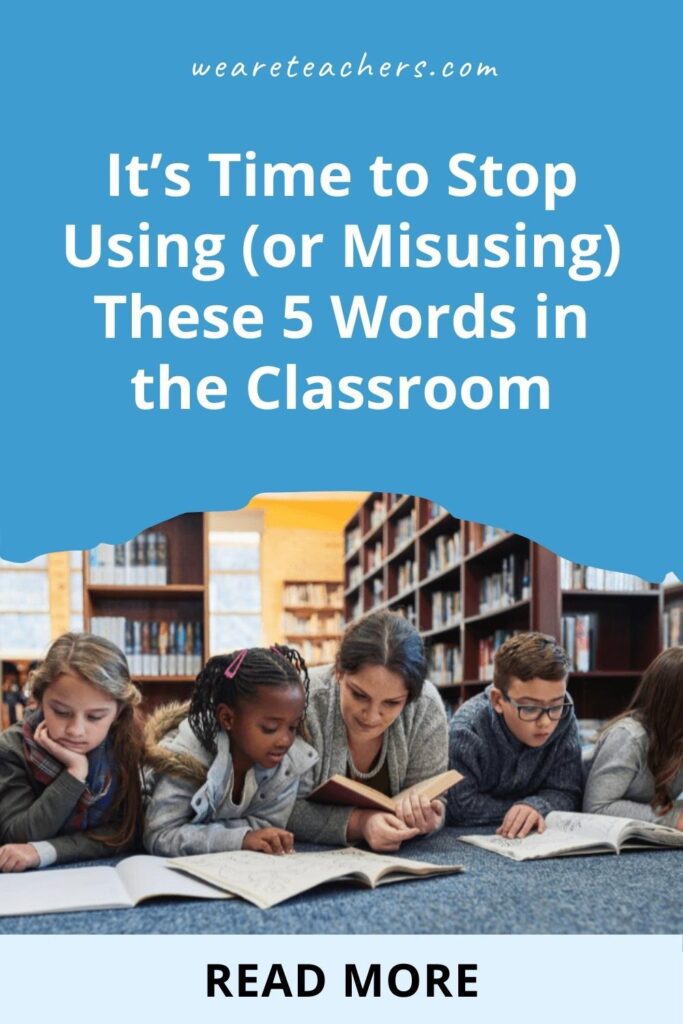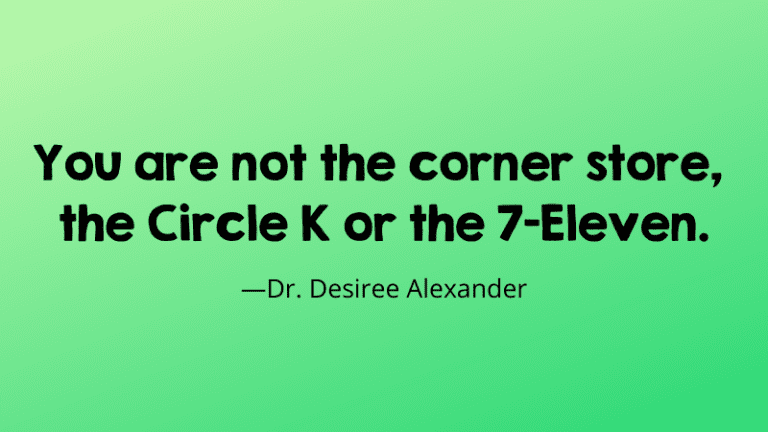I still remember an afternoon in first grade when I gave another girl at my table an eraser. I said she could keep it, only to decide that I actually wanted it back for myself. When I asked for it, my teacher admonished me.
“Don’t be an Indian giver!”
Reflecting on that incident in middle school, I looked up the story behind the phrase and read that Indians were often “tricky” in their dealings with the United States. There was no historical context, no understanding of how the phrase may come from racist origins or that it was actually Native people who had suffered from unjust and unfulfilled agreements. So, all I had was the perpetuated stereotype about Native people that I believed until I was a high schooler. As a teacher, when I heard my students use the term, I gently corrected them and explained its origin.
We know that words have power and the stories that our words come from can either uplift or harm. While the use of certain phrases may be unintentional, it’s important to remember how our impact often matters more than our intent. With that in mind, here are five more phrases that are more harmful than we may realize, and how we can replace them.
1. Tribe
Unless you are talking about an actual Indigenous or Native tribe who uses that word to describe themselves, this term often evokes a number of beliefs that are incorrect or untrue. As Chris Lowe says in a 2001 issue of Learning for Justice, “the term “tribe” has no consistent meaning. It carries misleading historical and cultural assumptions.”
When we think of a tribe, we often associate it with either Native or African people, and it tends to evoke some kind of deep, spiritual connection with others. As Lowe notes, “To be in a tribal state is to live in an uncomplicated, traditional condition.” However, those perceptions tend to flatten and ignore the multifaceted experiences and social bonds among many kinds of Native and African people. Additionally, the term has also been used as a colonial one to simplify the relationships and cultures of Native and African people, often related to their “savagery.”
Using the term in our classroom to describe groups of friends or peers both strips it of its meaning to describe actual Indigenous tribes and ignores the violent history within the word as well. Instead, we can just say, “group.” If you want to have a fun theme, you can make a “society” or even a “guild,” if you want to get your fantasy world going in your classroom.
2. Lowest on the Totem Pole
Firstly, this phrase, often used to mean “the person of least significance,” doesn’t actually make sense when you learn about totem poles, which vary in style and meaning between the different tribes who use them. They are often varying in their order, with some having no meaning attached to some actually placing importance on the figures toward the bottom. So, using this phrase with our students already perpetuates inaccurate information about what totem poles represent.
Using this term further strips totem poles of their true and important meaning to Indigenous people, which has “essentially robbed First Nation totem poles of their meaning by taking them, using their image and talking about them, out of their cultural contexts,” according to Dr. Robin R. R. Gray (Ts’msyen/Cree), an assistant professor at the University of Toronto. Totem poles are important and powerful symbols to the tribes who create them, and simplifying them and taking away that significance is harmful to those cultures.
Instead, we can just say, “lowest on the ladder” or “lowest significance.”
3. Gyp
This term, often used to mean “cheated” or “swindled,” actually comes from racist beliefs about the Roma or Romani people, a nomadic ethnic group found mostly in Europe. Because they were originally thought to be from Egypt, they were often called “gypsies.” Their nomadic lifestyle and focus on trade work (versus “stable” jobs) created stereotypes that they were untrustworthy or thieves. While it may seem innocuous, this term actually continues to perpetuate these ideas about a group of people who are already marginalized.
Given the connotation behind this word, being really clear with our language is important. We can simply say we were “cheated” or “lied to” instead of associating the action with a particular group or idea.
4. Cakewalk
Since a “cakewalk” was actually highly elaborate and difficult to perform, this phrase is also rooted in historical inaccuracy. This term actually derives from a dance created and performed by enslaved people on plantations for their enslavers. The dances were actually meant to mock their enslavers, who often missed the point (much to the amusement of those dancing it). Its roots actually come from a form of subtle, artful Black resistance.
The term didn’t come to mean “something easy to do” until the 1860s, and then it possibly comes from mocking the dances in minstrel shows. Using it now means that we’re not only passing along factually incorrect information (that “cakewalks” were easy), but also stripping it of its important historical context and meaning.
Instead, you can say that something was “a breeze.”
5. Powwow
Powwows are actual, important celebrations of Native art, dance, music, and communal gathering. They are also often highly elaborate and hold great cultural meaning to the Nation or tribe participating in the powwow.
So, unless we’re using the term to describe an actual powwow, using it as a way to describe a quick and easy meeting we want to have is, again, inaccurate, as powwows are far from quick or simple to put on. Additionally, it strips the term of its cultural context and meaning, which is particularly harmful to groups of people who have been robbed of their culture and land time and time again.
Instead, we can just say a quick “huddle” or “meetup.”
It’s hard to change the way we speak and, for some of us, it may feel like too much work to rethink phrases we commonly use.
Yet, we know that the words we say as teachers matter to our students. While it doesn’t always seem like it, many of them will carry the words we say in our classrooms into their adult lives. While these words and phrases may seem common now, we can model the ability to learn and change our actions once we understand the full story of a situation.
We owe it to our students to use language that is inclusive and factually correct so that we can prepare them to enter into their future as conscientious members of society.
What words have you stopped using as a teacher? Let us know in the comments.
Looking for more articles like this? Subscribe to our newsletters.


